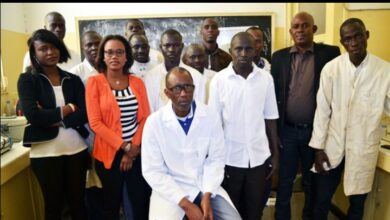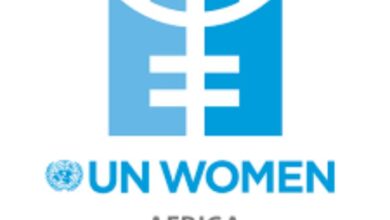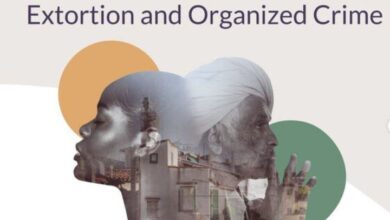UN Trust Fund to End Violence against Women
2018 Call for Proposals:
Deadline: 18 January 2019
The UN Trust Fund has launched a 2018 Call for Proposals for its 22nd grants cycle to support civil society organizations that qualify for funding under the three programmatic areas of its 2015-2020 Strategy.
The ultimate vision of the UN Trust Fund is a world without violence against women and girls that is aligned with international human rights standards and humanitarianlaw of which gender equality and the elimination of all forms of violence and discrimination against women and girls is an integral part.
Priority Programmatic Areas
The UN Trust Fund is seeking applications from organizations that qualify for grants under the three programmatic areas of the UN Trust Fund’s 2015-2020 Strategy:
Improving access for women and girls to essential, safe and adequate multi-sectoral services to end violence against women and girls;Increasing effectiveness of legislation, policies, national action plans and accountability systems to prevent and end violence against women and girls; andImproving prevention of violence against women and girls through changes in knowledge, attitudes and practices.
Thematic Funding Windows
Within this general framework, the UN Trust Fund is also seeking applications under two special thematic funding windows to bring attention to:
addressing violence against women and girls in the context of the current forced displacement and refugee crisis; andaddressing violence against women and girls with disabilities.
Funding Information
3 years grants of US$ 150,001 to US$ 1 MILLION for all civil society organizations3 year grants of US$ 50,000 to US$ 150,000 for small civil society organizations
Eligibility Criteria
Type of OrganizationWomen-led and women’s rights organizations that have specialized knowledge, expertise and track record of working in women’s human rights and prevention and/or elimination of violence against women and girls. Supporting documents are required (constitutions, by-laws, organigrammes) to enable the UN Trust Fund to determine whether the organization is women’s right and/or women-led.Humanitarian organizations: Organizations must either have specialized knowledge, expertise and track record of working on women’s human rights and prevention and/or elimination of violence against women and girls in humanitarian contexts or partner with local women’s organizations that have the requisite expertise. Larger organizations should demonstrate the ability and plan to partner and build capacities of the local women’s groups and organizations.Organizations of women with disabilities, as well as organizations of persons with disabilities (DPOs) and civil society organizations working with women and girls with disabilities: Organizations must either have specialized knowledge, expertise and track record of working on prevention and/or elimination of violence against women and girls with disabilities or partner with local women’s organizations that have the requisite expertise. For grants where the secondary partner has disability-focused expertise, their full and meaningful involvement and participation should be adequately budgeted for, built into the project work plans and should be evaluated. Ideally, applicants should demonstrate a track record of working jointly with DPOs and with women and girls with disabilities.Regional/international civil society organizations and networks (women-led, women’s rights and humanitarian organizations as well as organizations of persons with disabilities only): Organizations must have national presence in the country and/or territory of implementation. The proposal must be focused on a single country and demonstrate how the proposed intervention will contribute to national change and/or capacity development and ownership of national aimplementing partners are legally registered in the country (or territory) of implementation.
How to Apply
Applicants can apply online via given website.
Eligible Countries:
Africa: Angola, Benin, Botswana, Burkina Faso, Burundi, Cameroon, Cape Verde, Central African Republic, Chad, Comoros, Congo, Cote d’Ivorie, Democratic Republic of the Congo, Djibouti, Equatorial Guinea, Eswatini, Eritrea, Ethiopia, Gabon, Gambia(Republic of The), Ghana, Guinea, Guinea-Bissau, Kenya, Lesotho, Liberia, Madagascar, Malawi, Mali, Mauritania, Mauritius, Mozambique, Namibia, Niger, Nigeria, Rwanda, Saint Helena, Sao Tome and Principe, Senegal, Sierra Leone, Somalia, South Africa, South Sudan, Sudan, Togo, Uganda, United Republic of Tanzania, Zambia, Zimbabwe.Americas & the Caribbean:Antigua and Barbuda, Argentina, Belize, Bolivia(Plurinational State of), Brazil, Colombia, Costa Rica, Cuba, Dominican Republic, Dominica, Ecuador, El Salvador, Grenada, Guatemala, Guyana, Haiti, Honduras, Jamaica, Mexico, Montserrat, Nicaragua, Panama, Paraguay, Peru, Saint Lucia, Saint Vincent and the Grenadines, Suriname, Venezuela, Bolivarian Republic.Arab States: Algeria, Egypt, Iraq, Jordan, Lebanon, Libya, Morocco, State of Palestine, Syrian Arab Republic, Tunisia, Yemen.Asia & the Pacific:Afghanistan, Bangladesh, Bhutan, Cambodia, China, Cook Islands, Democratic People’s Republic of Korea, Fiji, India, Indonesia, Iran (Islamic Republic of), Kiribati, Lao People’s Democratic Republic, Malaysia, Maldives, Marshall Islands, Micronesia (Federated States of), Mongolia, Myanmar, Nauru, Nepal, Niue, Pakistan, Palau, Papua New Guinea, Philippines, Samoa, Solomon Islands, Sri Lanka, Thailand, Timor-Leste, Tokelau, Tonga, Tuvalu, Vanuatu, Vietnam, Wallis and Futuna.Europe and Central Asia:Albania, Armenia, Azerbaijan, Belarus, Bosnia and Herzegovina, Georgia, Kazakhstan, Kosovo (UN Administered Territory Under UNSCR 1244), Kyrgyzstan, Republic of, Moldova, Montenegro, Serbia, Tajikistan, The former Yugoslav Republic of Macedonia, Turkey, Turkmenistan, Ukraine, Uzbekistan.
For more information, please visit https://grants.unwomen.org/untf/cfp/application-guidelines




